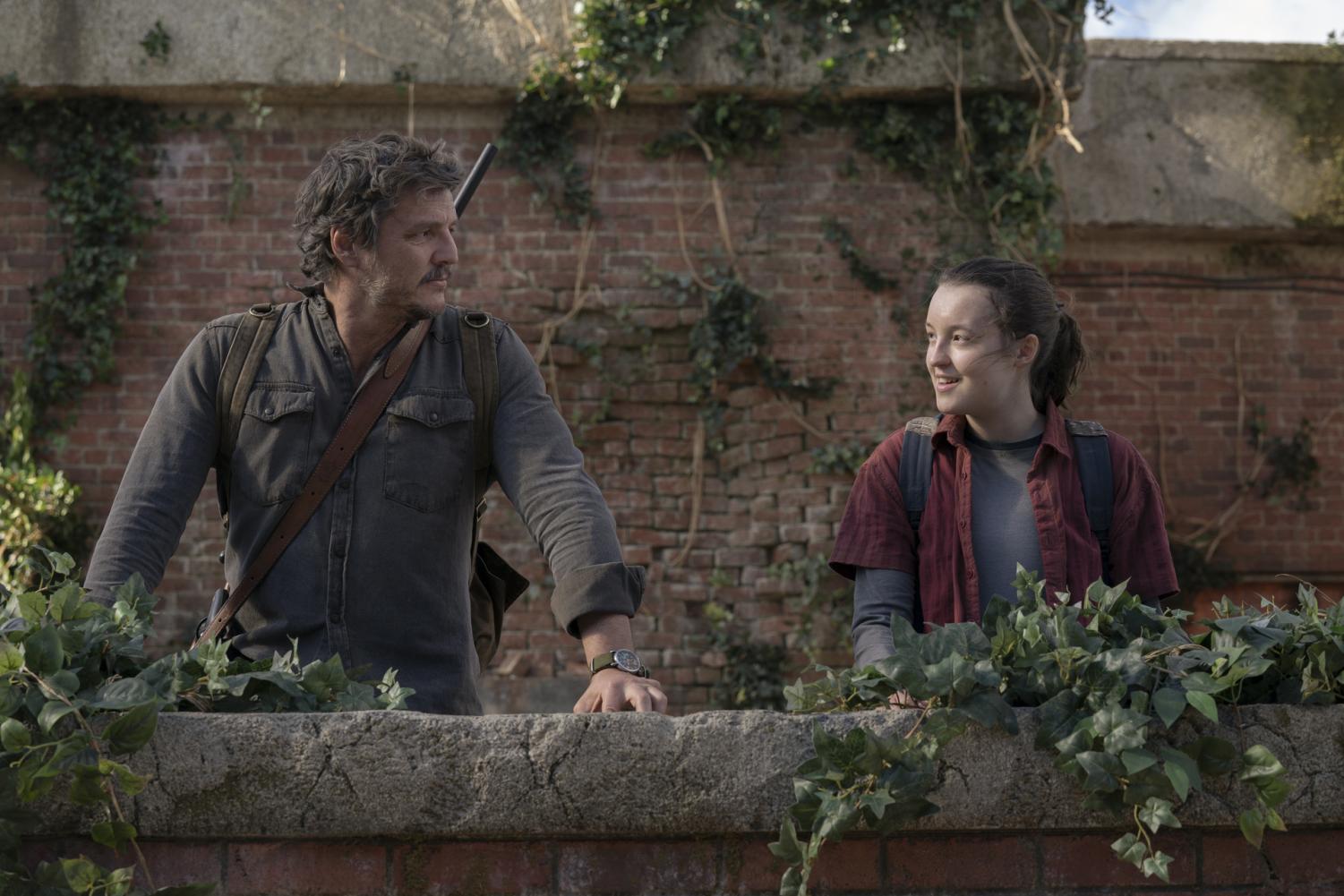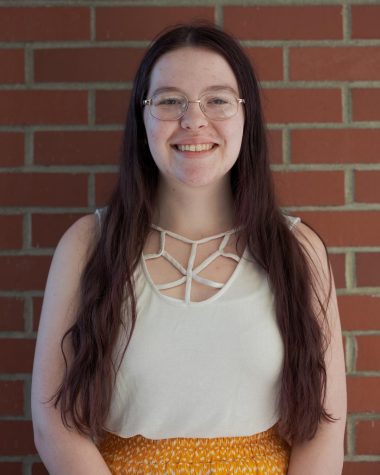To love is to lose
‘The Last of Us’ depicts beautiful, deadly, apocalyptic kinds of love, the consequences it can have
April 7, 2023

“The Last of Us” is not a fun show to watch. It is not easy to watch, nor is it particularly entertaining, depending on how the term is defined.
However, despite all of the things it is not, the show manages to be incredibly captivating in its exploration of the remnants of humanity after an apocalypse and the relationships between those survivors. In only nine episodes, it manages to beautifully depict recurring cycles of love, loss and what people will do to prevent that loss.
Airing on HBO Max from Jan. 15 to March 12, “The Last of Us” tells the story of Joel Miller (Pedro Pascal), a smuggler willing to do whatever it takes to survive, and Ellie (Bella Ramsey), a teen girl who is immune to the cordyceps fungus that has infected the world. After Joel finds himself in need of transportation to find his brother, Tommy (Gabriel Luna), he makes a deal with the leader of the rebellion group known as the Fireflies to take Ellie to a location where they can use her immunity to manufacture a cure for the infection.
Keeping with the trend of other zombie apocalypse media, this “zombie show” is not really about zombies. In fact, after the first few episodes, a zombie–or in this case, an infected–appearance is rare. The more pressing threat becomes people around Joel and Ellie and, sometimes, Joel and Ellie themselves–or what they are willing to do to protect each other.
Loss sets the tone of the show from the beginning. The first episode opens with a long look at Joel’s life before the apocalypse, when he had a teenage daughter named Sarah (Nico Parker). When the cordyceps outbreak erupts in Texas, Sarah is killed, but not by the infected – by an American soldier. Her death sets the backdrop for the rest of Joel’s journey throughout the show as he tries not to become attached to the people he encounters but fails time and time again.
Next, it happens to Tess (Anna Torv), his partner whom he may also have had a romantic relationship with. It is clear that Joel and Tess have both done some, at best, questionable things in their time, and in the first episode, we see that they encourage violence in one another, leading to a less than healthy kind of love. He loses her in the second episode when she is bitten by an infected, and she has to convince him to continue the journey with Ellie even though he does not believe a cure is possible.
The next loss for Joel is Bill (Nick Offerman) and Frank (Murray Bartlett), the couple that Joel and Tess connected and traded with. While their deaths at the end of episode three mean the loss of two more friends for Joel, their love story serves as a stark contrast to Joel and Tess’ relationship, as well as other pictures of love shown throughout the rest of the show. Before they die, they live out a long, full life together, where they keep each other from being lonely and isolated. Their ability to open up to and rely on one another while also listening to each other creates a beautiful kind of love that, while protective, is not violent. Notably, they are the only characters in the show that get to die peacefully, in their old age – together.
But for Joel, the pattern continues from there. When he and Ellie meet brothers Henry (Lamar Johnson) and Sam (Keivonn Woodard), he tries to not care about them but fails. And just when he is willing to let them tag along on the journey, they also die tragically. However, his greatest “failure” in his attempts to not experience more loss is with Ellie.
Like Joel, Ellie has also lost much. She never knew her mother, who died shortly after giving birth to her, and had to kill her best friend and the girl she loved, Riley (Storm Reid), when her and Ellie were bitten by infected. She is hit just as hard as Joel, if not harder, when Henry and Sam die. But while she does not address her own trauma healthily – something she has in common with Joel – she does respond to it differently. For her, this journey is about preventing loss on a grand scale, for the rest of the world. If she can do that, then maybe it all will have been worth something.
During episodes six through eight, Joel and Ellie’s newfound closeness and desire not to lose the other clearly shows. Joel is concerned that he will not be strong enough to protect her, but Ellie is the one who ends up having to protect him when he is severely wounded. While he urges her to leave him behind, she refuses, unwilling to let him die too. Because of this, she is forced to survive on her own for a time and, in episode eight, is almost killed by the people who hurt Joel. This is one of the more difficult episodes to watch as Ellie fights for her survival against their leader, David (Scott Shepherd), who, for all of his surface-level kindness, is a cruel and controlling man, bordering on monster.
Even though Joel has recovered enough to make his way to Ellie’s location at this point, Joel is not the one who saves her – she has to save herself. Her confrontation with David ends in a brutal moment of overkill as she repeatedly stabs him to death, screaming and crying and traumatized from the encounter.
When Joel does find her, he wraps her in his coat and tells her, “It’s okay babygirl, I got you.” In this moment, it is clear that despite their insistence otherwise, Joel and Ellie have undeniably become father and daughter. And with that realization comes another, one that will have consequences for the rest of the world: Joel will not lose another daughter.
The final episode sees these consequences come into action. When Joel and Ellie finally make it to the Firefly hospital, Joel is told that the only way make the cure is for Ellie to die. Her death will save countless lives, the world, even. But the world is not what matters to Joel – Ellie does. So, after everything that has happened, he makes the only choice that, really, he ever could. He chooses Ellie over the world.
The sequence that follows is oddly captivating. Gustavo Santaolalla’s score swells as Joel commits to the violent path he has followed for a long time. Importantly, the show does not relish in the slaughter of the dozens of Fireflies Joel mows through. If anything, it laments it. Most of the deaths are filmed at a distance, from Joel’s perspective. But when the camera does linger and focus in, it focuses on the bodies left behind. These and so many others are the losses Joel causes because of his love for Ellie. The cycle of love and loss continues elsewhere, even if he has stopped it from affecting him for awhile.
Unfortunately, this show does suffer from the same problem many other shows of the streaming age have had – being too condensed for its own good. Joel and Ellie’s transition from smuggler and cargo to father and daughter is made less smooth by the frequent time skips and overall lack of breathing room in the show to let it develop. However, the incredible performances by Pascal and Ramsey help to sell their dynamic throughout the show, filling in any gaps left.
Showrunners Neil Druckman and Craig Mazin set out to tell a story about the ways love can be corrupted, misused. And they did. In only nine episodes, “The Last of Us” manages to tell a beautiful story about a literally apocalyptic kind of love, something that, as the show moves into its future seasons, will inevitably continue to bring consequences.



























































































